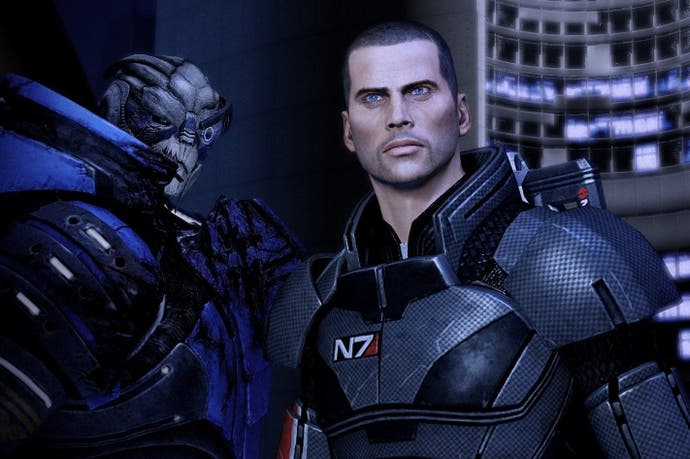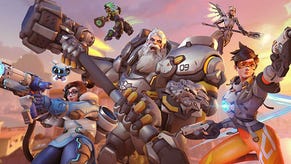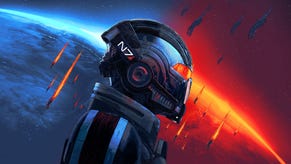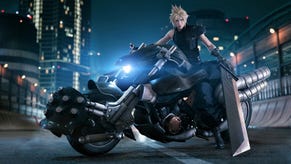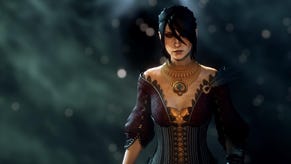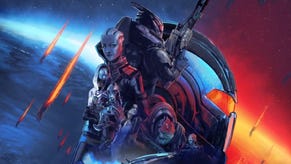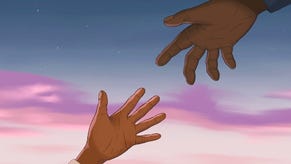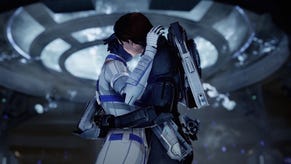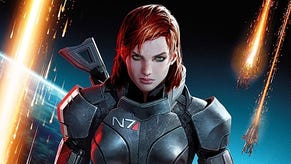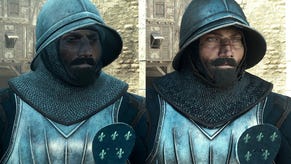Mass Effect 2 and the importance of character
Collectors edition.
Editor's note: With the recent release of Mass Effect Andromeda, quite possibly BioWare's worst RPG to date, we look back to one of its best. This retrospective first appeared on Eurogamer in June 2014.
"Character is plot, plot is character," said F Scott Fitzgerald, though it's a guideline to which very few games adhere. Usually they focus on plot, either by metering it out as a series of objectives for the player to follow, or by cutting it up, mixing up the pieces and letting the player pick a handful out of a bag. Character, if it happens at all, does so somewhere down the line.
Even the mighty Mass Effect fell into this trap. Its story is all Spectres and Geth, Rachni and Thorians. It focuses on establishing a universe, and does so by laying out a complex and sometimes overwhelming buffet of lore. "The devs can't help letting you gorge on it - to a fault," wrote Tom Bramwell in his retrospective of the original. In this vast milieu of races, cultures, and organisations all at the mercy of some galaxy-eating threat, individuals got a little lost, and the game ended up feeling somewhat cold.
Mass Effect 2 changes all that. With the series' major mystery - the existence of the Reapers - unveiled in the first game, BioWare needed to find a new way to invest the player. So Mass Effect 2 strips back much of what slowed the first game down, and in doing so exposes the pink and tender flesh of character hidden amid all that lore.
BioWare begins this process by killing off the character you care about most - you. While on a routine scouting mission around some icy planet, the Normandy is attacked and destroyed by a mysterious vessel, and Commander Shepard, saviour of the Citadel and hero of humanity, is left floating dead in the cold black of space. It's an abrupt beginning for an RPG, grabbing your attention within the first five minutes. Impressively, Mass Effect 2 retains this immediacy for the majority of its 20-to-40 hour length.
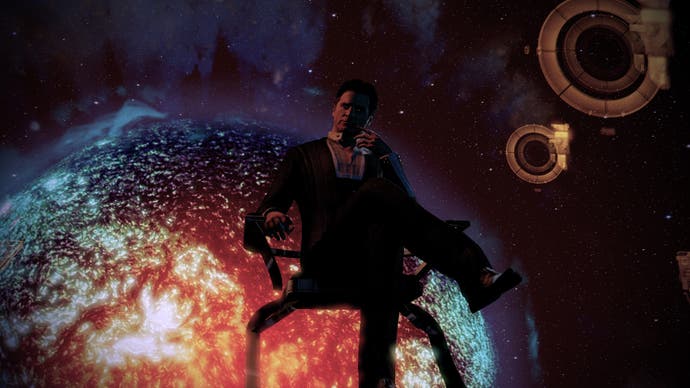
Some of this is down to what's been removed, some of it to what's changed. The decision to jettison the planetary exploration sections in favour of more third-person combat was a sad one, but it unquestionably speeds up the pace of the game. It helps that the developers made it work through a snappy combat redesign. Shepard slips in and out of cover like a velvet pillow, and those semi sci-fi guns fizz and snap delightfully.
Conversations were tweaked to propel them forward with greater urgency. Sure, you could still ask an Omega shop vendor about the culture of the entire station if you want, but BioWare also added the ability to interrupt conversation in a manner which appealed to either your Paragon or Renegade leanings. So in one instance you might stop an injured Quarian soldier from unnecessarily sacrificing himself to aid you. In another you could kick a mercenary out of a skyscraper window on Illium for giving you back-talk.
But what really enables Mass Effect 2 to hold the player's attention so long is its characters. To briefly break Fitzgerald's axiom, Mass Effect 2's plot is stupidly simple. Shepard is resurrected by the human paramilitary group Cerberus, and tasked with investigating and ultimately taking down a race of aliens known as the Collectors, who have been abducting entire human colonies. To do this Shepard must pass through the Omega 4 Mass Relay, which, as assassin Thane Krios portentously points out, "no ship has ever returned from."
In order to succeed, Shepard needs to recruit a team and ensure that they are loyal, willing to do whatever it takes to see the job to the end. It's the Dirty Dozen in space, and it's the process of building this team, which makes up the majority of the game. The story, ultimately, is about them.
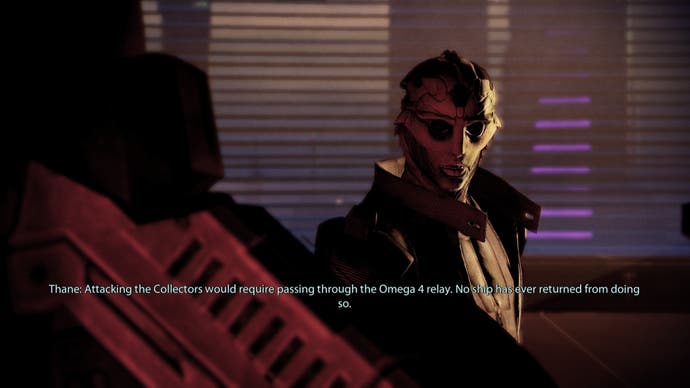
This is demonstrated most by the loyalty component, which is Mass Effect 2's real stroke of genius. During the course of your adventure each recruited character divulges some kind of problem which they need resolving. Doing so ensures their full commitment to you and increases the likelihood of the final mission succeeding. More importantly though, each "loyalty mission" focuses in on each character individually, and during its course you get a glimpse of their past, their idiosyncrasies, loves and hates.
The Illusive Man describes your team as "the brightest, the toughest, the deadliest allies we can find", and they are. But they're also astonishingly broken, a motley crew of outcasts, mercenaries, murderers, and genetic freaks. Take Mordin Solus, the witty and brilliant Salarian geneticist with a soft spot for human Operetta, who is eventually revealed as responsible for an unspeakable atrocity. Mordin's loyalty mission is about his coming to terms with that action, about ceasing hiding behind his logical arguments and accepting that he is both hero and villain, saviour and monster.
New characters such as Jack and Thane harbour similarly troubled pasts, while returning ones have been given a personality tune-up, a grittier edge or a layer of vulnerability. Garrus and Tali have both become leaders in their own rights after Shepard's initial demise, and both struggle with the consequences. Periphery characters like Liara have changed in Shepard's absence, their exteriors hardened in response to deeper stresses and internal conflicts. It is in many ways a more human game. Darker, warmer, more ambiguous.
As you explore the galaxy, the Normandy SR2 slowly becomes a microcosm of Mass Effect's carefully crafted interstellar society. You deal with your crewmates' problems, and in the process deal with the problems of the universe. You intervene when conflicts spark between them. They accompany you on side missions you stumble upon when playing the monotonous and yet annoyingly compulsive planet-scanning mini-game.
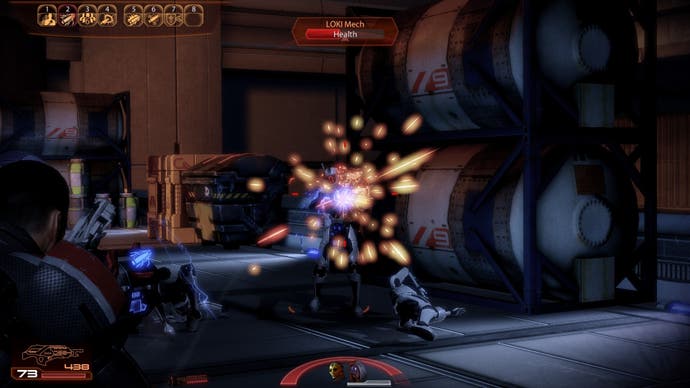
It's worth pausing momentarily to highlight that while Mass Effect 2 is a tighter and more focussed game, it is just as expansive and colourful as its predecessor. The planets might be smaller, but they are more diverse. There's a planet shrouded in fog that conceals dog-sized fire-spitting bugs, while another is illuminated by a star so powerful the sunlight burns through your shields. There's a mission where you must navigate the skeletal wreck of the MSV Estevanico, perched so precariously on the edge of a cliff that any sudden movement could send it plummeting into the abyss.
Everything feeds back to your ultimate goal. Every optional planet conceals something that will help you on your path - an upgrade for your weapons or items, or a few resources you can use in those upgrades. It all funnels toward that final, decisive battle with the Collectors, that journey through the Omega 4 relay to face whatever awaits you on the other side. Throughout its significant running time, Mass Effect 2 works towards an epic climax. When it arrives, it doesn't disappoint.
It's a thundering, powerful close. And it all comes back to character. Even if you've prepared in every way possible, completed all the loyalty missions, fully upgraded the ship, gone through the relay quickly after obtaining the Reaper IFF, there's still a chance things will go wrong if you make bad decisions in the heat of the moment. Send the wrong team-mates to complete the wrong tasks, and people will die. And it will be on you.
The possibility of that loss is electrifying, the fight matters, protecting your squad-mates, your friends, matters. Jack Wall's "Suicide Mission" theme kicks in with literally all of the drums as Shepard makes one last desperate dash for the Normandy while everything explodes and the Collectors' puppeteer Harbinger rumbles some ominous nonsense and it's all utterly, breathlessly thrilling.
Mass Effect 2 begins as the game that lets you carry on using your choices from the original. It ends as a single entity, taking the huge and vibrant universe of the first game and using it to tell an intimate story about people. It's got the grandeur of a space opera, the daring of a heist movie, and the gravitas of an epic. I don't know what gaming's Citizen Kane is, and frankly I don't much care, because we've already found our Empire Strikes Back.
